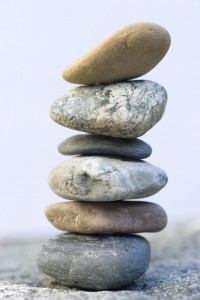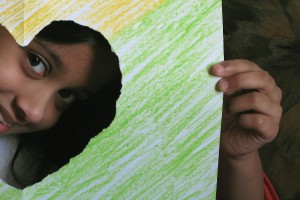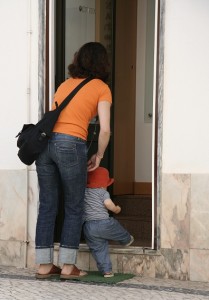
Pamela Price at Red, White & Grew asked a hugely welcome question about Giftedness beyond the child-stage:
How do we begin to talk about the gifted lifetime in fruitful ways that benefit a maximum number of people?
She invited comments, but I expected mine would be too long (in full) so I started here.
I have a few bullet points that shape the rest of my thoughts.
- Have a common definition (so we can unblushingly agree that humanity contains both gifted and non-gifted individuals).
- Create a safe place where understanding is the primary goal. Competition or one-upmanship needs to find an outlet somewhere else.
- If the non-gifted want to observe, they must assume good-will (the gifted people in these discussions are working out their own issues, not denigrating people different from themselves).
- We will get so much farther, faster, if we don’t have to saturate our observations and discoveries with disclaimers.
- Trust each other: our experiences will be different, and if we expect to police each others’ diagnoses, that leads to insecurity and back to competition.
 Some adults (without using the word gifted, or acknowledging their own giftedness) say that feeling alone is just part of adolescence, or part of the human condition. Religious/Christian people will have very specific ideas about what’s missing in one’s life.
Some adults (without using the word gifted, or acknowledging their own giftedness) say that feeling alone is just part of adolescence, or part of the human condition. Religious/Christian people will have very specific ideas about what’s missing in one’s life.
These two bits (smart– in my experience, gifted— people who acknowledge the ‘off’ while invalidating the accompanying confusion, and religious people who expect their tested formulas to fix things) are the two halves of my own experience.
Between excellent honors-track teachers in high school and talented professors at college, I was surrounded by a very comfortable level of challenge and growth. I was kept busy enough through that era of my life that the discontent buzzing in the back of my mind was kept decently managed.
I’m one of those who can’t not-believe in God (and I think that’s a good thing). All my life I’ve been involved in Church, and done what I can to make it (find it?) challenging. So when I started learning about giftedness (well into adulthood) I was giddy to realize that the small church I currently attended was easily 70% gifted. More if you included the mass of kids.
That explained to me why we were so many on the same “wavelength” in intensity, intellectual demands, high conviction, with a level of educational rigor (sense of personal responsibility) for our children, many of us homeschooling, many of us eschewing the Standard American Diet.
[To this day I’m convinced that the cohesiveness of the group is tied at least in part to the shared giftedness, and the feeling of having found one’s “tribe.” This was especially notable because we varied, sometimes significantly, in our theology– usually a reason to “break fellowship.”]
According to the one book on adult giftedness I’ve read, the level of giftedness in the general population is 10%, so I imagine finding a group where nearly everyone was your kind, well, I will personally attest it is hard to walk away from (and I’m still trying to find my land legs).
The odd thing to me is that when I tried to have this [Yay! Look at us, we’ve found each other!] conversation with various gifted members of the congregation (much more calmly and maturely, I assure you), I was immediately shut down.
I can see, now, some sociological/psychological reasons for their dismissal and denial, but at the time I was deeply confused.
It is in this background that my summary of “conversation-starters” is rooted (with a tiny bit of repetition).
- Provide a vocabulary. Tie it to everyday living.
- I think the best way to start this conversation is to include people and give them a context for this “otherness” they’ve felt much of their lives.
- Let people identify themselves– and believe them.
- Yes, some will be wannabes, but as long as we manage the competition/one-upping side of things they will either benefit by association, or drop out on their own.
- Validate– agree that there are good things and commiserate with the disappointing stuff.
- My first two years investigating this topic I had this imaginary conversation in my head: “So you just figured out you’re gifted, huh?” “Yup.” “Just now? Are you sure you don’t need a second opinion?”
- Provide models (alternatives to the TV-reinforced stereotypes) of successful gifted-lifetimes.
- Brainstorm how to become those models
- My primary motivation for trying to convince my fellow church members about giftedness was that nearly all our children were gifted. I felt we had a unique opportunity as a close-knit, gifted population to raise our children in a way that might inoculate them against the shame or embarrassment we received for our eagerness or “over-achieving.”
- All of which that continued into adulthood, by the way…
- My primary motivation for trying to convince my fellow church members about giftedness was that nearly all our children were gifted. I felt we had a unique opportunity as a close-knit, gifted population to raise our children in a way that might inoculate them against the shame or embarrassment we received for our eagerness or “over-achieving.”
- Create a culture of mutual creation rather than comparison.
- I keep harping on this angle, but I think it’s crazy-important: we are all so different from one another (along with having things in common) that if we are going to make progress in any meaningful way it will not be through propping ourselves up via the battered bodies of lesser mortals.
So there you are: Where I think the conversation should start. Where it goes from here I’ll be fascinated to watch.
 I had to have enough conviction for the whole family when I knew it was depression. That effort on top of the grief, guilt, and personal disappointment was so draining, I couldn’t do anything beyond the naming. I felt helpless, and was
I had to have enough conviction for the whole family when I knew it was depression. That effort on top of the grief, guilt, and personal disappointment was so draining, I couldn’t do anything beyond the naming. I felt helpless, and was 







 For me, combating depression has been about my relationships as much as my biology. Especially my relationship with myself.
For me, combating depression has been about my relationships as much as my biology. Especially my relationship with myself.